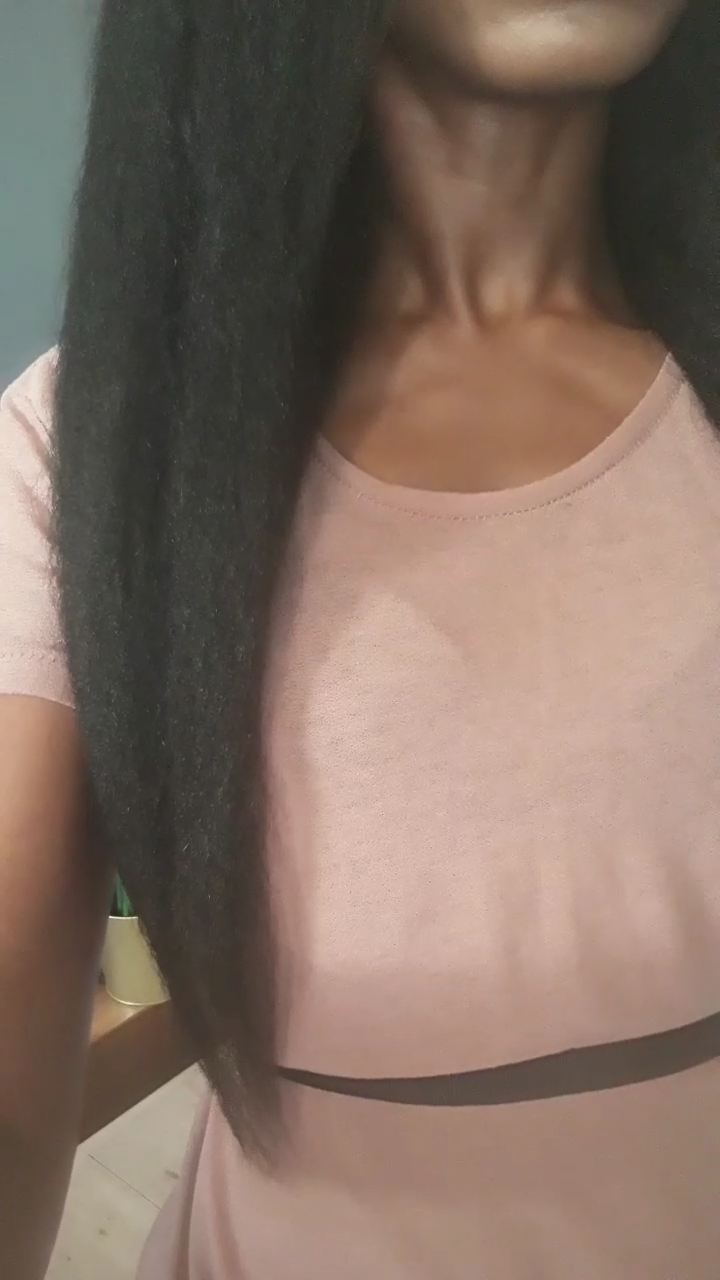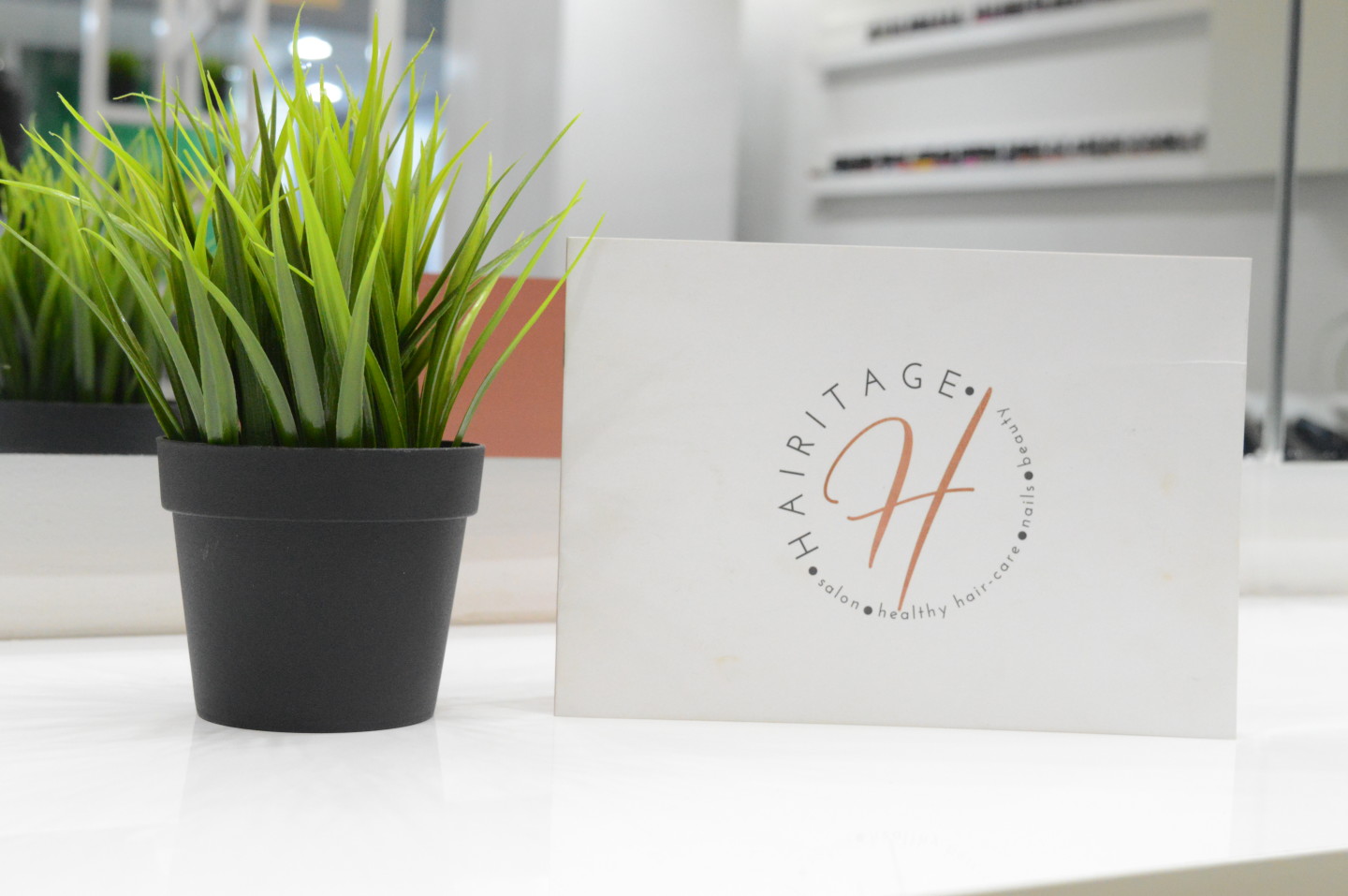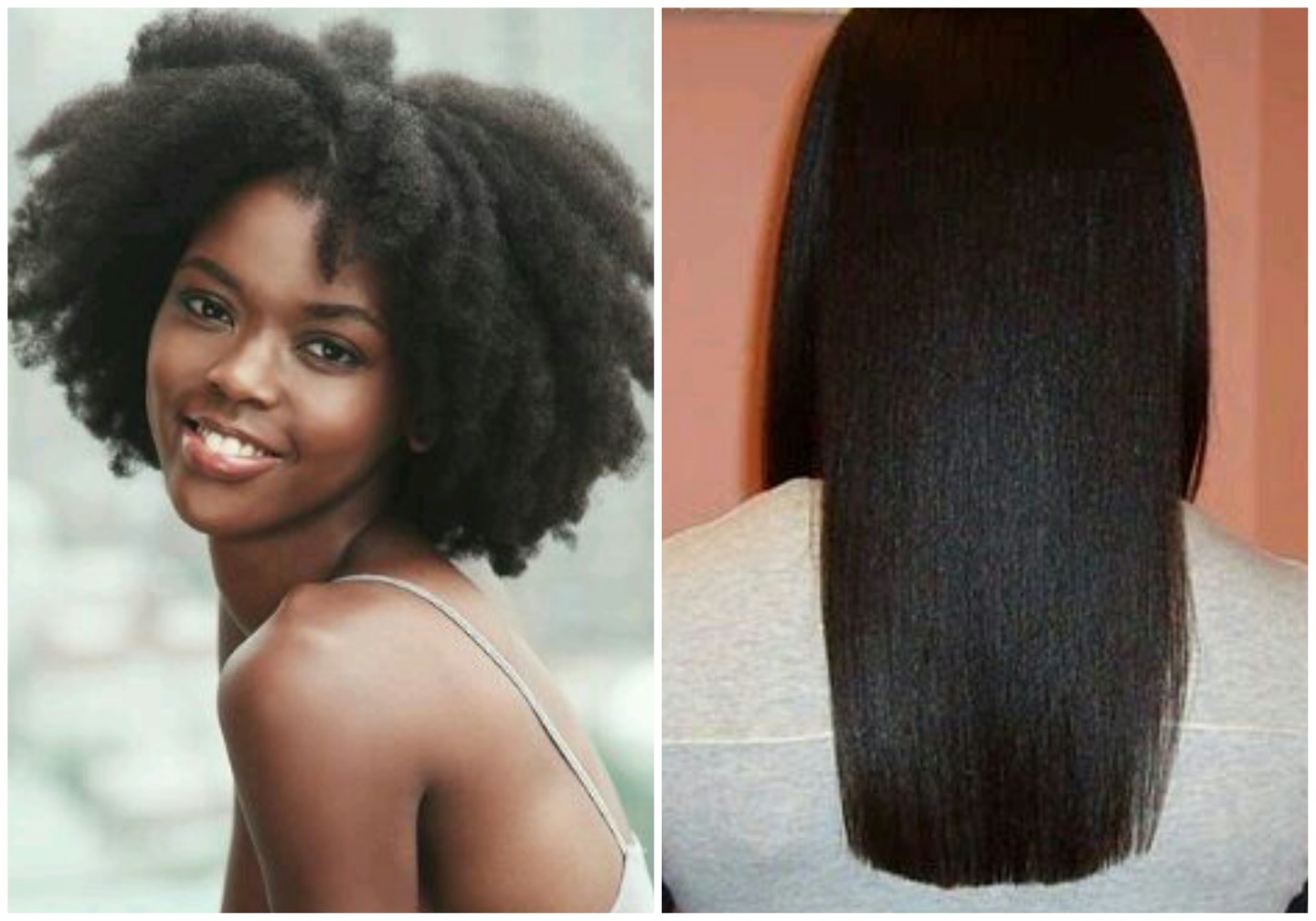
Hello Ladies
As promised, in this post I am going to share pictures of my hair which I texlaxed a month ago. I am also discussing the major challenge I had with my hair last year, how it led to me cutting off over 5 inches off my hair and how I managed to maintain waist length hair despite the cut.
I failed ladies, I failed in getting pictures of my hair blow out. I had reserved a day to get my wash and a few other things done but then I had a really bad fever so wash day was cancelled. I washed it eventually the next day when I felt better but I air dried. If you are new to Hairducation and my texlaxed hair you may not know that it shrinks when I air dry it so my hair looks shorter than its blown out length. For anyone who wants to see my blown out length you will see it in my highlights on my IG page later today. So with that said, the pictures in the post were taken on my last wash day when my hair was dry but my roots were still very damp.
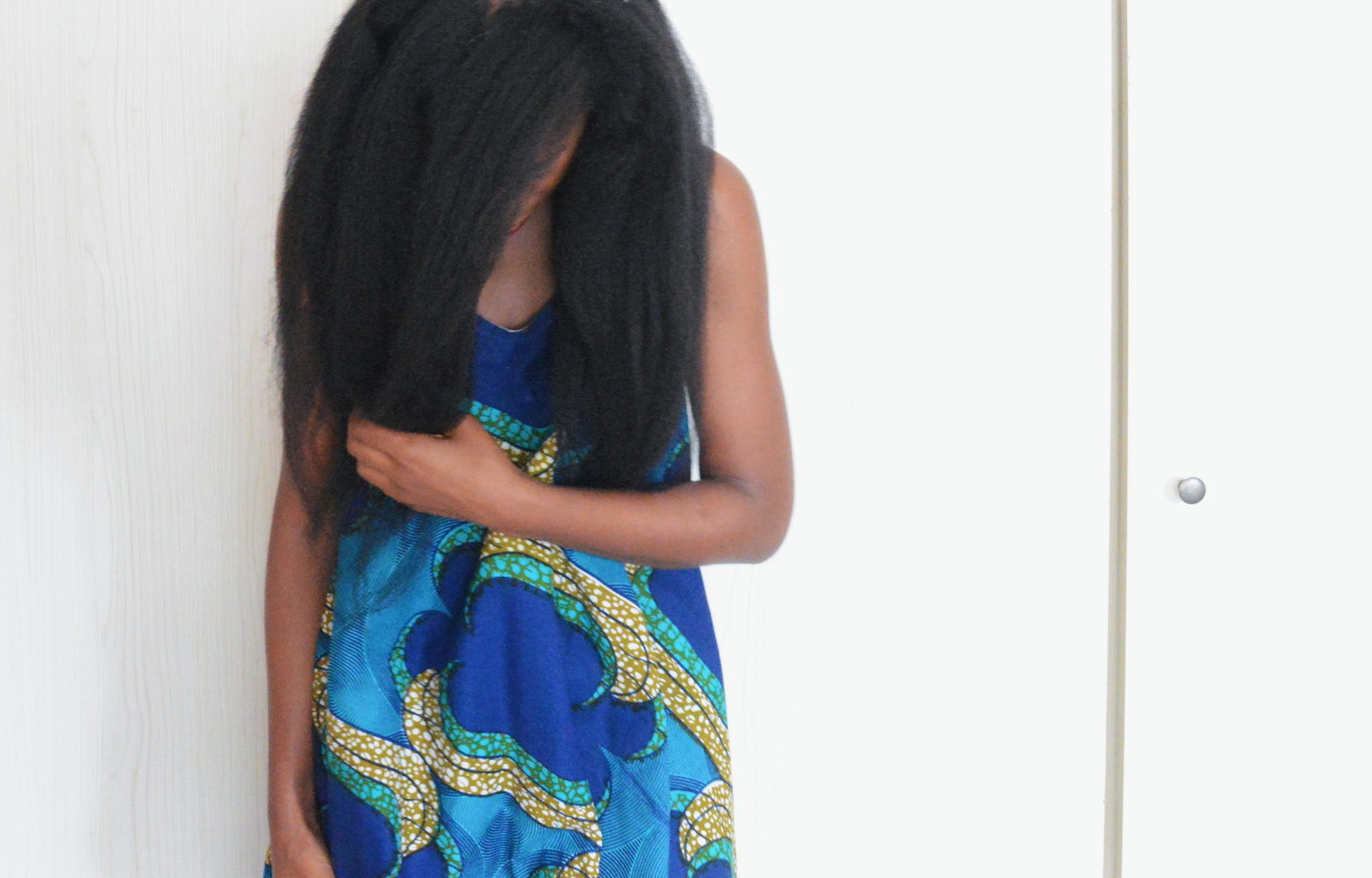
My Major Hair Challenge from 2017
I moved to the UK for 9 months in March last year and arrived with hair that was in my opinion, the best it had ever been. After a few months it just didn’t feel the same way, it tangled more, seemed to be changing colour and felt different and not in a good way. My hair looked okay but if didn’t feel as good as it should have. I was baffled because I was keeping up with my regimen despite my crazy schedule at the time and using products that worked well for my hair.
I texlaxed in September 2017 and was shocked by how bad my ends were tangling even after deep conditioning. Ladies when I say tangles, I mean grab a scissors and cut me out tangles. For the first time in a long time I had to trim my ends because it needed a trim. Usually I trim my hair on texlax day to keep my hair at waist length. But this time those ends HAD to go so I trimmed off two inches and was still waist length.
By October I looked at my ends and thought hold up, I need another trim???? Why??? I’ve been good to my hair so why are my ends looking busted. I trimmed off about an inch and half and my hair felt so much better. Giving the issue some thought I realised it was the hard water prevalent in many parts of the UK.
The mineral in hard water penetrates the cracks of hair fibres and cannot be removed by normal shampoos. The more porous the hair fibre is, the deeper and more affected the hair will be by the minerals. The mineral will form a coating on the hair and prevent your hair products from working. This will lead to discoloured and very dry hair which tangles and breaks.
I remembered how badly hard water affects my hair and decided to start chelating my hair once a month. I was sure that would fix it because I had grown my hair from shoulder length to bra strap length in a hard water area of the UK following my current regimen. I was convinced that increasing the regularity of my chelating would suffice.
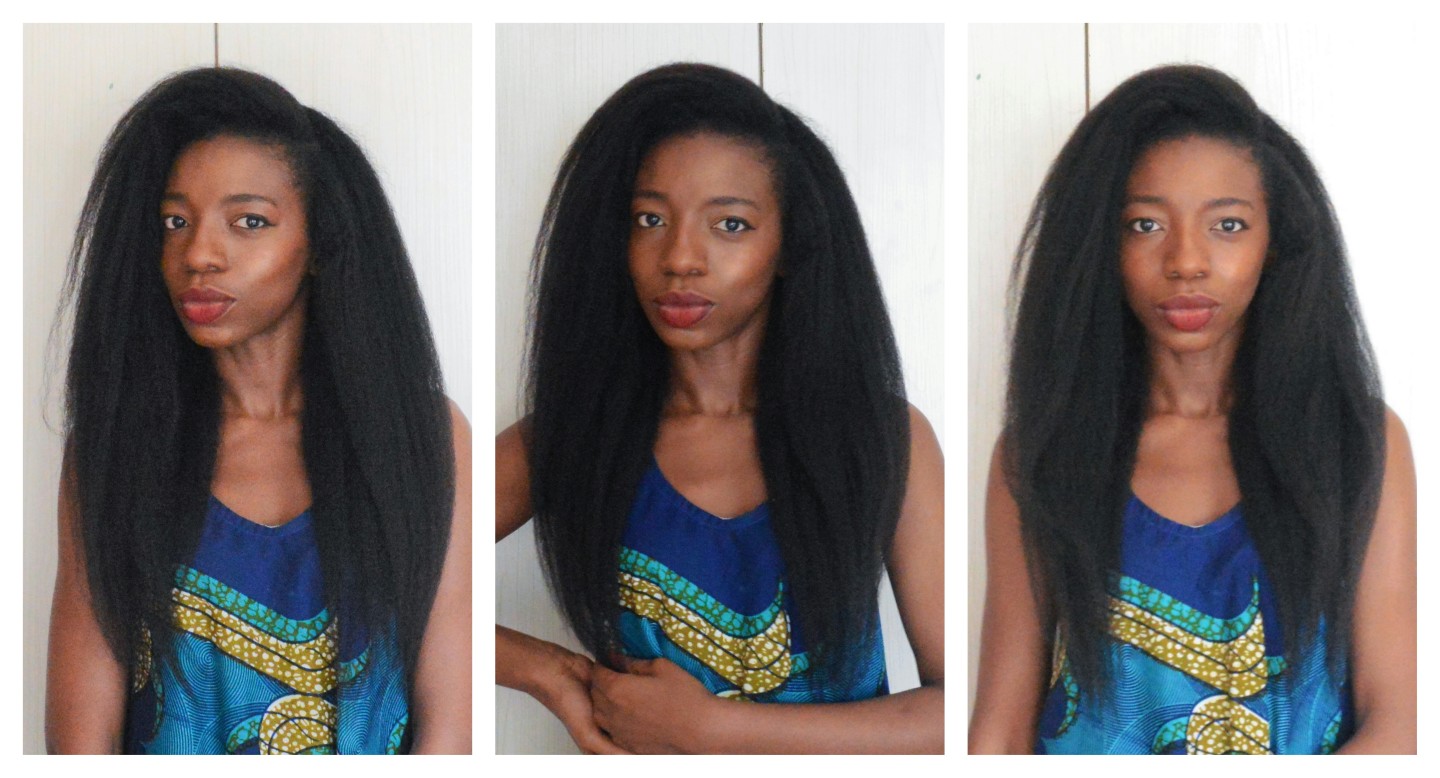
After my return to Nigeria at the end of 2017, I began to panick because my hair was still acting crazy despite no longer being in a hard water area. I could no longer predict how my would respond to products or techniques. So being a research prone person, I dug deeper and found out exactly what the issue was. It was……….hard water. Yes …that was still the cause. The residue of hard water was still in my hair and that was what was causing all the havoc.
I was puzzled and didn’t understand why the hard water had such a horrible effect on my hair in comparison to my earlier years in the UK. I carried out further research and discovered something I never realised. There are varying levels of hard water. Through my research I found that the area I lived in at the earlier part of my hair journey had hard water whilst the area I lived in in 2017 had extreme levels of hard water. You can compare the levels in the image below.

Despite my return to Nigeria, I realised I probably still had some hard-core mineral residue on my hair fibres. I purchased and used a very strong swimmers shampoo by a brand called Ion. I washed a second time with my Cream of Nature Argan Oil shampoo and deep conditioned as normal. The difference to my hair was immediate but I trimmed off another two inches to get rid of thinned out ends. I also realised why my ends bared the brunt of the hard water damage. The ends of hair are the most porous parts of hair and as I mentioned earlier in this post, the more porous the hair, the more damage it will sustain from the hard water. The key lesson here is that for ladies who live in countries with hard water, find a way to check your hard water levels. If it is high, consider getting a shower head hard water filter and use a strong chelating shampoo every 3 to four months to remove the minerals that may be on your hair fibres. Don’t let hard water wreck your hair like it almost did mine.
My hair has been doing great since then and I am back to being happy with it and I hope you have learnt a thing or two from my experience.
Have you had any challenges with your hair recently? How are you bouncing back from it?
My next post will be an educative post about split and damaged ends. I will be sharing a few microscopic images of healthy and damaged ends. There will be loads to learn so see you soon
X
Lade
Learn | Change | Grow


